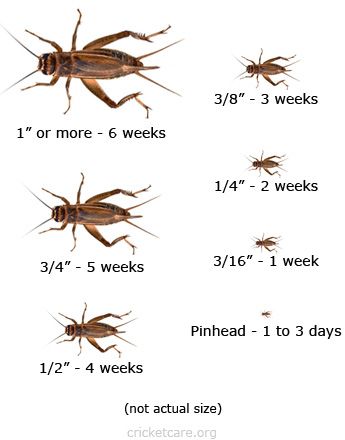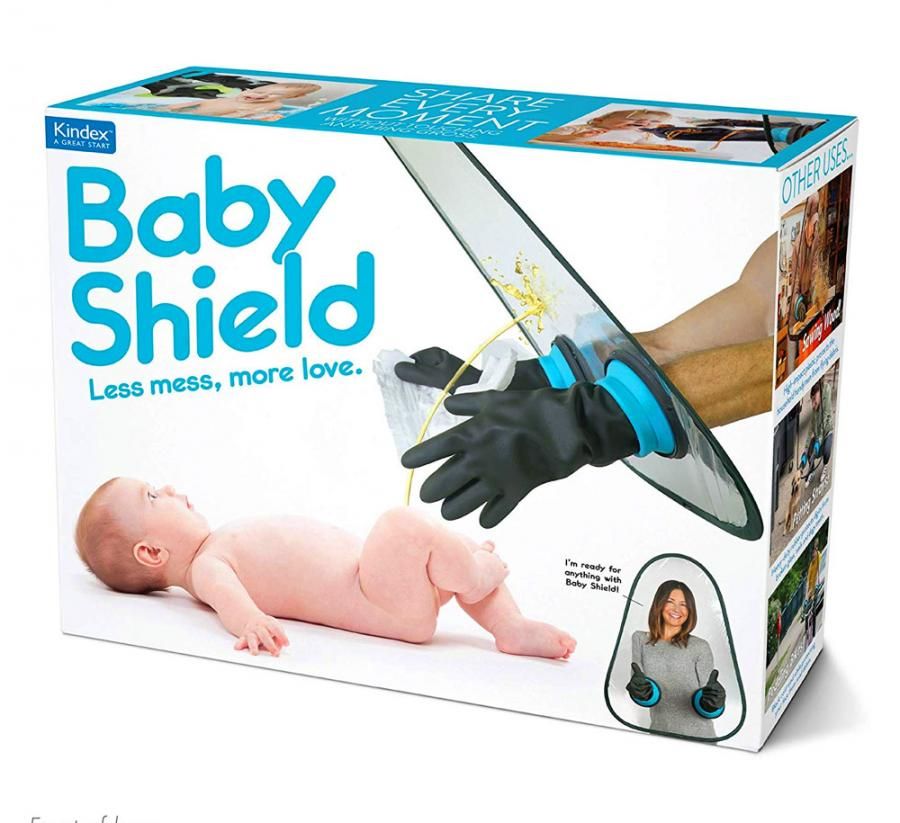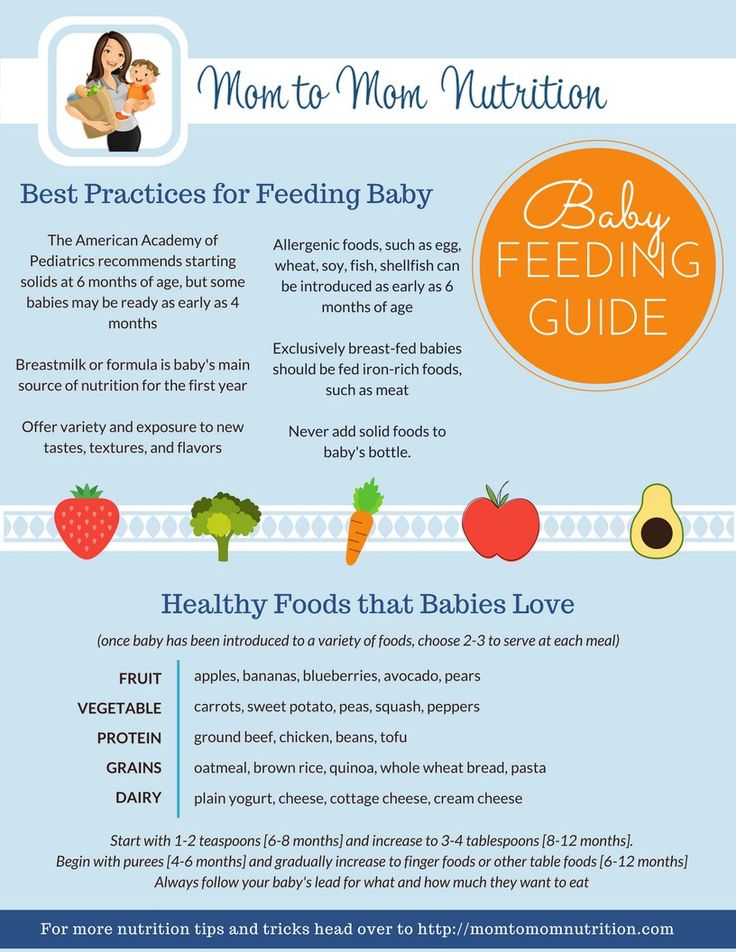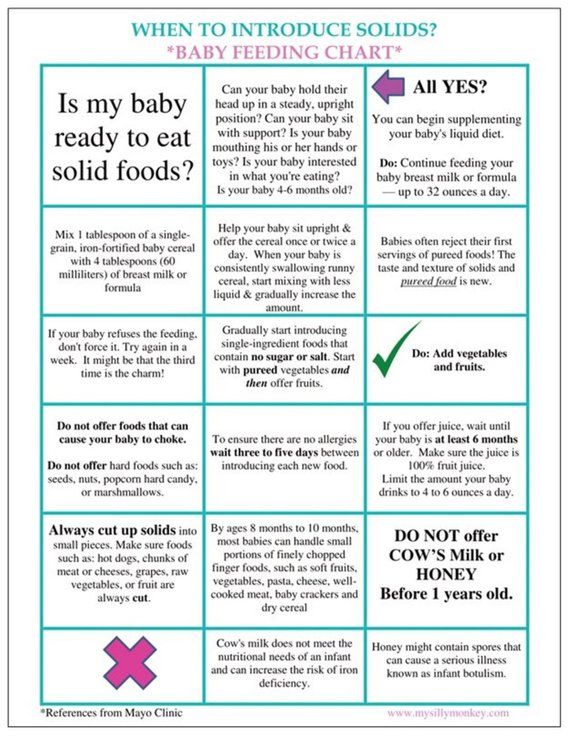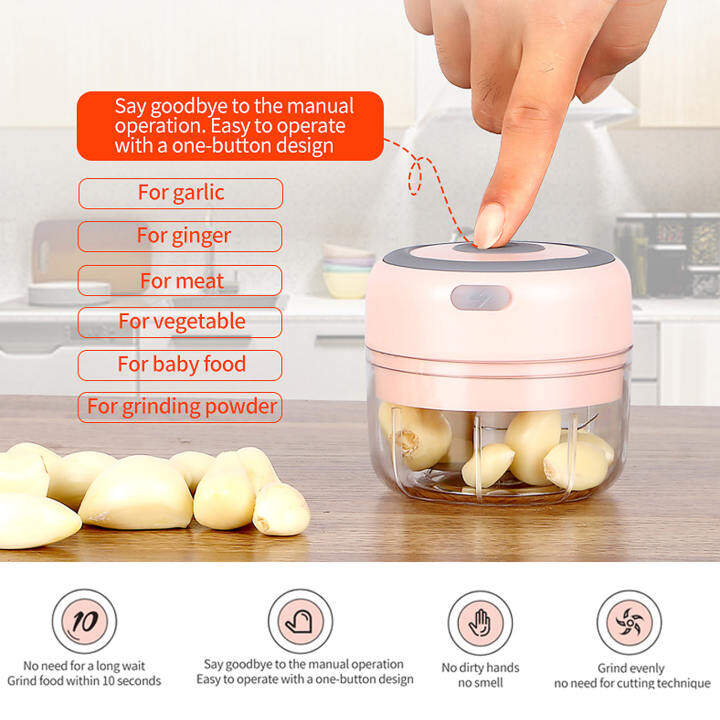Do you wake baby to feed
Sleep and Your Newborn (for Parents)
Newborns don't yet have a sense of day and night. They sleep around the clock, and because their tiny stomachs don't hold enough breast milk or formula to keep them satisfied for long, they wake often to eat — no matter what time of day or night it is.
How Long Will My Newborn Sleep?
Newborns should get 14–17 hours of sleep over a 24-hour period, says the National Sleep Foundation. Some newborns may sleep up to 18–19 hours a day.
Newborns wake every couple of hours to eat. Breastfed babies feed often, about every 2–3 hours. Bottle-fed babies tend to feed less often, about every 3–4 hours.
Newborns who sleep for longer stretches should be awakened to feed. Wake your baby every 3–4 hours to eat until he or she shows good weight gain, which usually happens within the first couple of weeks. After that, it's OK to let your baby sleep for longer periods of time at night.
The first months of a baby's life can be the hardest for parents, who might get up many times at night to tend to the baby. Each baby has a different sleep pattern. Some start to sleep "through the night" (for 5–6 hours at a time) by 2–3 months of age, but some don't.
How Should Babies Sleep?
During the first weeks of a baby's life, some parents choose to room-share. Room-sharing is when you place your baby's crib, portable crib, play yard, or bassinet in your own bedroom instead of in a separate nursery. This keeps baby nearby and helps with feeding, comforting, and monitoring at night. The American Academy of Pediatrics (AAP) recommends room-sharing without bed-sharing.
While room-sharing is safe, putting your infant to sleep in bed with you is not. Bed-sharing increases the risk of SIDS (sudden infant death syndrome) and other sleep-related deaths.
Follow these recommendations for a safe sleep environment for your little one:
- Always place your baby on their back to sleep, not on the stomach or side. The rate of SIDS has gone way down since the AAP began recommending this in 1992.
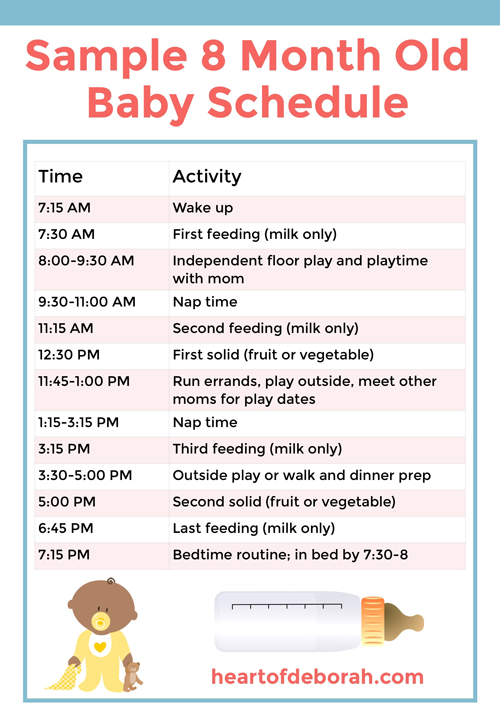
- Use a firm, flat sleep surface. Cover the mattress with a sheet that fits snugly.
- Do not put anything else in the crib or bassinet. Keep plush toys, pillows, blankets, unfitted sheets, quilts, comforters, sheepskins, and bumper pads out of your baby's sleep area.
- To avoid overheating, dress your baby for the room temperature and don't overbundle. Don't cover your baby's head while they're sleeping. Watch for signs of overheating, such as sweating or feeling hot to the touch.
- Keep your baby away from smokers. Secondhand smoke increases the risk of SIDS.
- Offer a pacifier to your baby at sleep time, but don’t force it. If the pacifier falls out during sleep, you don’t have to replace it. If you're breastfeeding, wait until breastfeeding is firmly established.
- Watch out for other hazards, such as items with cords, ties, or ribbons that can wrap around a baby's neck, and objects with any kind of sharp edge or corner. Look around for things that your baby can touch from a seated or standing position in the crib.
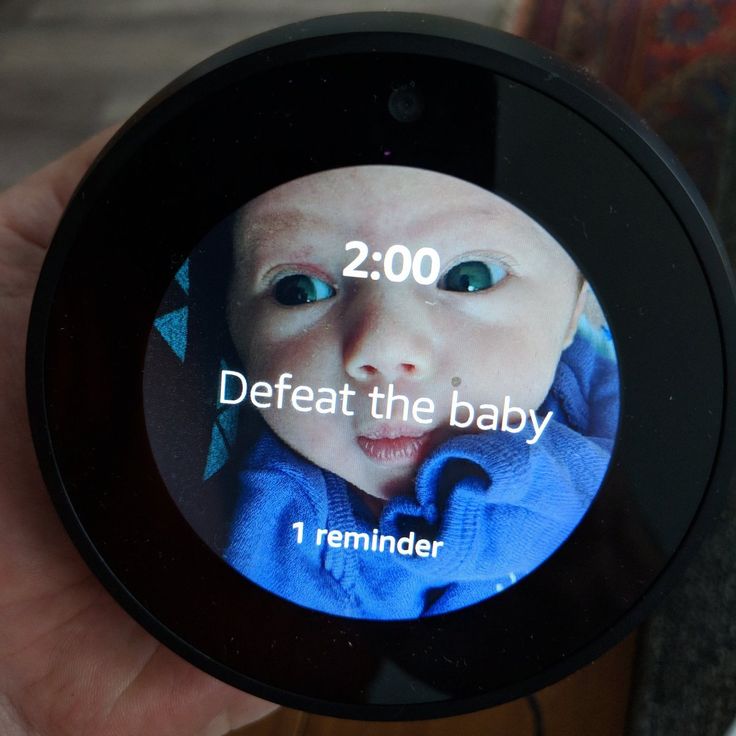 Hanging mobiles, wall hangings, pictures, draperies, and window blind cords could be harmful if they are within a baby's reach.
Hanging mobiles, wall hangings, pictures, draperies, and window blind cords could be harmful if they are within a baby's reach. - Don’t let your baby fall asleep on a product that isn’t specifically designed for sleeping babies, such as a sitting device (like a car seat), a feeding pillow (like the Boppy pillow), or an infant lounger (like the Dock-a-Tot, Podster, and Bummzie).
- Don’t use products or devices that claim to lower the risk of SIDS, such as sleep positioners (like wedges or incliners) or monitors that can detect a baby’s heart rate and breathing pattern. No known products can actually do this.
- Don’t use weighted blankets, sleepers, or swaddles on or around your baby.
- Make sure that all sleep surfaces and products you use to help your baby sleep have been approved by the U.S. Consumer Product Safety Commission (CPSC) and meet federal safety standards.
Helping Your Newborn Sleep
Newborns follow their own schedule.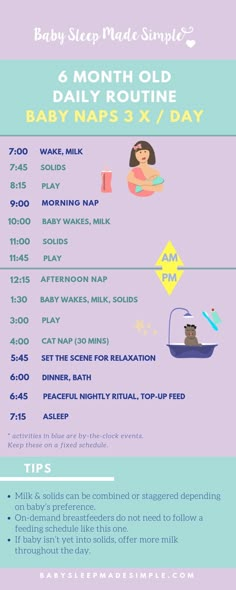 Over the next couple of weeks to months, you and your baby will begin to settle into a routine.
Over the next couple of weeks to months, you and your baby will begin to settle into a routine.
It may take a few weeks for your baby's brain to know the difference between night and day. Unfortunately, there are no tricks to speed this up, but it helps to keep things quiet and calm during middle-of-the-night feedings and diaper changes. Try to keep the lights low and resist the urge to play with or talk to your baby. This will send the message that nighttime is for sleeping. If possible, let your baby fall asleep in the crib at night so your little one learns that it's the place for sleep.
Don't try to keep your baby up during the day in the hopes that your little one will sleep better at night. Overly tired infants often have more trouble sleeping at night than those who've had enough sleep during the day.
If your newborn is fussy it's OK to rock, cuddle, and sing as your baby settles down. Swaddling (wrapping the baby in a light blanket) can also help to soothe a crying baby. If you swaddle your baby and they start trying to roll over, that is a sign that you can stop swaddling. For the first months of your baby's life, "spoiling" is definitely not a problem. In fact, newborns who are held or carried during the day tend to have less colic and fussiness.
If you swaddle your baby and they start trying to roll over, that is a sign that you can stop swaddling. For the first months of your baby's life, "spoiling" is definitely not a problem. In fact, newborns who are held or carried during the day tend to have less colic and fussiness.
When Should I Call the Doctor?
While most parents can expect their newborn to sleep or catnap a lot during the day, the range of what is normal is quite wide. If you have questions about your baby's sleep, talk with your doctor.
When You Need to Wake Your Newborn to Feed – bökee
December 22, 2020
A lot of what you read will tell you to feed your baby on demand. Meaning, follow their cues as they’ll let you know when they’re hungry (and they usually will)! But there are times when it is either necessary or helpful to wake a sleeping baby to feed them.
“Never wake a sleeping baby,” may seem like sound advice, but there are actually situations where waking your little one up is what’s best. Here we’ll cover when you’ll want to wake your newborn to feed them, how long you can let a newborn sleep without eating and the best way to go about waking your newborn when it’s time to eat.
Here we’ll cover when you’ll want to wake your newborn to feed them, how long you can let a newborn sleep without eating and the best way to go about waking your newborn when it’s time to eat.
Waking up your newborn is common practice for new parents to ensure they’re getting enough to eat. It’s also advised for breastfeeding mamas so that the baby is at the breast often enough for the body to know to keep producing more milk. In addition to feeding your baby every 3 hours (including waking them to do so) always be sure to keep tabs on other signs that your baby is getting enough to eat.
1.) When Your Doctor Advises It
Before we go over the top reasons why you’d want to wake your sleeping baby to feed them, we first want to remind you that what your doctor tells you trumps everything we say. If you are unsure about anything that’s going on with your baby, you need to contact your child’s pediatrician. They will advise you on what’s best for your and your little’s unique situation - perhaps asking you to wake your baby more or less frequently than what is typically advised.
They will advise you on what’s best for your and your little’s unique situation - perhaps asking you to wake your baby more or less frequently than what is typically advised.
2.) Before Your Baby Has Regained His Birth Weight
Babies typically lose about 7 - 10% of their birth weight within the first few days of life, according to Kids Health. This is normal due to the extra fluid that a baby is carrying when they are born. At an average rate of 1-ounce in growth per day, a baby should have this regained by their two-week appointment. So until that time, it’s your job to give your baby all the calories they need to thrive and keep growing steadily as expected. By not letting your baby sleep longer than 3 hours at a time (yes, even at night) your baby has enough opportunities each day to get their calorie needs met to make this happen.
3.) To Establish Breastfeeding
Breastfeeding is all about supply and demand. When your baby demands it, your body produces it. In order for your body to keep getting the message that it needs to produce more milk, breastfeeding (or pumping as discussed here) around the clock is necessary to keep a steady milk supply for your little one. So be sure to wake that baby up to feed every 3 hours in those early weeks. Just remember, you can't nurse too often!
In order for your body to keep getting the message that it needs to produce more milk, breastfeeding (or pumping as discussed here) around the clock is necessary to keep a steady milk supply for your little one. So be sure to wake that baby up to feed every 3 hours in those early weeks. Just remember, you can't nurse too often!
The advice to wake a baby for the above reasons doesn’t mean we are suggesting putting your baby on a schedule (such as feeding every 3 hours no matter what.) You should still be feeding your baby on demand and when they show hunger cues! La Leche League writes, “Scheduling feedings for a baby who is exclusively nursing frequently throughout the day and night, especially during the first six weeks has been correlated with slow weight gain.”
Just know that this may end up being a lot sooner than every 3 hours with more than 8 - 12 feeds in a day. When your baby shows they’re hungry, feed them!
Instead, the advice is that you shouldn’t let your newborn baby go longer than 3 hours between feedings which means if your baby keeps sleeping past that mark, you need to wake them up to eat.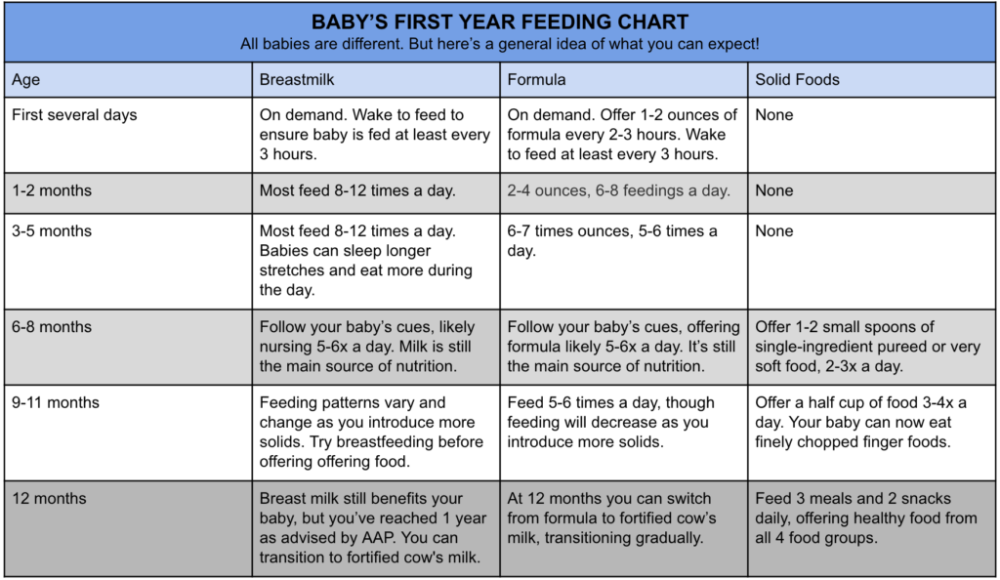 As your baby grows, so does this amount of time.
As your baby grows, so does this amount of time.
How long you can let your baby go between feeds depends on a variety of factors. Here are some to consider:
1.) Your baby’s age. Full-term babies who are younger than two weeks should be fed every 3 hours until breastfeeding is established and they’ve regained their birth weight. A baby under six weeks should not sleep longer than 4-5 hour stretches. Of course, if you’ve been given the all clear from your doctor to let your baby sleep longer, then that is the advice to take. If you have a preemie baby or other concerns, we advise you to reach out to your doctor to see how long you should let your baby go between feeds.
2.) Your baby’s weight gain. In the hospital the nurse will most likely have you feed your baby every 3 hours. This is also the guideline they give you when they send you home with your new little one. Until your baby’s 2-week check-up, this is ideally what you’ll want to follow which is when they’ll be able to determine if your baby is gaining weight at the desired rate. Getting to this point is a huge milestone for a baby and also for you in knowing you can let your baby go for longer stretches of sleep (about 4 - 5 hours) now that they’re getting nice and chubby. Weight measurements will continue to be “taken throughout your baby’s first year, and if baby is struggling to put on enough weight again, the doctor may advise you to feed more often again.
Getting to this point is a huge milestone for a baby and also for you in knowing you can let your baby go for longer stretches of sleep (about 4 - 5 hours) now that they’re getting nice and chubby. Weight measurements will continue to be “taken throughout your baby’s first year, and if baby is struggling to put on enough weight again, the doctor may advise you to feed more often again.
3.) Whether you’re breastfeeding or formula feeding. Babies who are formula-fed can usually go longer stretches between feeds than breastfed babies can. This is because breastmilk is digested more quickly than formula. However, you still need to follow the "feed every three hours" rule until your doctor has given the go ahead for longer stretches. After that, letting a formula-fed baby go a bit longer than a breastfed baby between feeds is normal (provided they have enough wet diapers and are gaining weight well.)
RELATED: The Best Way to Feed Your Baby Formula at Night
How do I wake my newborn to feed?
Newborns are sleepy little humans. Which means it may not be as easy as you’d think to wake them up when it’s time for them to eat (especially in the middle of the night). Here are some tips to help them out to ensure they are alert enough to feed and get that tummy nice and full.
Which means it may not be as easy as you’d think to wake them up when it’s time for them to eat (especially in the middle of the night). Here are some tips to help them out to ensure they are alert enough to feed and get that tummy nice and full.
Undress them down to their diaper. The chill of the air is often enough to wake a baby enough to eat. You can put a blanket around them to keep them warm enough once they begin to feed.
Use a cool washcloth on their face or body. Similarly, the coolness of a wet washcloth provides a great little wake-up call. I always felt a bit guilty doing this with my babies though.
Wake your baby when they’re in a light sleep. If you see your baby’s eyelids fluttering or moving around (even slightly) this is a good time to try to arouse them for their feeding.
Talk to your baby as you feed to keep them awake. Just a bit of sound might be all they need to wake.
Rub your nipple (or bottle nipple) against your baby’s mouth. This will alert your baby that it’s time to eat (try getting a few drops of colostrum or milk to touch his lips, too).
This will alert your baby that it’s time to eat (try getting a few drops of colostrum or milk to touch his lips, too).
Switch sides or move your baby if they nod off. If you see your baby start to fall asleep, give them a break and put them upright to wake her up a bit. Then you can continue feeding again.
Other Times You May Wake Your BabyPro Tip: If you aren't breastfeeding and need to prepare bottles for those nighttime feeds (from formula or pumped milk) we recommend always having a bökee to get them ready. Even though you need to wake your baby to feed them, most of the time they'll wake on their own. At that point you'll need to prepare a bottle one-handed and the bökee is perfect for that. (Use BLOG15 to save 15%)
Waking your baby every three hours to eat in the early weeks is imperative to help them grow and thrive. But there are many other reasons why you might decide to wake your baby:
- For a dirty diaper.
 You don’t need to worry about waking your baby for a wet diaper, if it doesn’t bother them, don’t let it bother you. Poop is a different story. Many babies will wake from this anyway, but if you do smell poop, you’ll want to change them soon. It they’re in the middle of a nap and you know they’ll be up in a bit, there’s no need to wake them prematurely, but if it’s the middle of the night, you’ll need to get them a fresh diaper (a calm change in the dark is your best bet here.) This will keep the chances of diaper rash down.
You don’t need to worry about waking your baby for a wet diaper, if it doesn’t bother them, don’t let it bother you. Poop is a different story. Many babies will wake from this anyway, but if you do smell poop, you’ll want to change them soon. It they’re in the middle of a nap and you know they’ll be up in a bit, there’s no need to wake them prematurely, but if it’s the middle of the night, you’ll need to get them a fresh diaper (a calm change in the dark is your best bet here.) This will keep the chances of diaper rash down. - When it’s getting too close to bedtime. This article explains how long a baby’s last nap of the day should be as well as how much time to keep between the last nap and bedtime (depending on age). If your baby’s nap is edging to close to bedtime where they won’t have enough time in between to be sleepy before bedtime, it’s a good idea to cut that last nap short with a wake-up.
- To prevent too long of naps. One major reason that babies wake frequently in the middle of the night or don’t seem tired is because they have their days and nights mixed up.
 If you let your baby take too long of naps, they naturally won’t be ready to sleep as much or for as long as stretches at night. As a rule of thumb, don’t let your newborn sleep longer than 3 hours at a stretch during daytime sleep, and closer to 2-2.5 hours is plenty at a time for an older baby.
If you let your baby take too long of naps, they naturally won’t be ready to sleep as much or for as long as stretches at night. As a rule of thumb, don’t let your newborn sleep longer than 3 hours at a stretch during daytime sleep, and closer to 2-2.5 hours is plenty at a time for an older baby. - For the Dream Feed. Once your baby is past the earliest few weeks and your doctor has given you the go ahead to let your baby sleep in longer stretches, adding in a dream feed is a good idea. In order to do this, you will have to wake up your baby just enough for them to eat. Then you’ll put them right back down to sleep. The dream feed is something you can do to allow yourself more sleep when you head off to bed. For example - instead of feeding your baby at 7 (when they go to sleep) and midnight, you can feed them at 10 and 3 - allowing yourself a better stretch of sleep in the process.
Those early days with a newborn are tough, there is no denying that. And when you’re already so exhausted it can be tough to rouse your own self to wake your sleeping little one. But keep reminding yourself that it’s temporary, and that as the weeks go on and your doctor keeps giving you the green light, you’ll be able to let your baby sleep to their heart’s content and feed them when they "demand" it.
And when you’re already so exhausted it can be tough to rouse your own self to wake your sleeping little one. But keep reminding yourself that it’s temporary, and that as the weeks go on and your doctor keeps giving you the green light, you’ll be able to let your baby sleep to their heart’s content and feed them when they "demand" it.
Jane Springston
Older Post
Newer Post
Age verification
By clicking enter you are verifying that you are old enough to consume alcohol.
Enter
TOP-7 tips on how to feed a restless child
Does your baby even think about eating calmly? He runs around the apartment, and you run after him with a plate and a spoon? We offer a few tips that will help feed the little fidget without running around and pampering.
Eating is not the most interesting activity for an active two year old toddler. He has far more exciting and important things to do. For example, run around the apartment, explore every corner, figure out how useful (and not so) things work. But that doesn't mean you have to stand upside down trying to feed your baby. Check out the seven important rules that will help you feed your baby without the hassle.
See also: "8 steps to teach your baby to eat on their own"
1. Eat with your baby
It is important that there is a permanent place in the house where all household members eat - a table in the kitchen or in the living room . By observing what is happening around, the baby learns many things. He tries to imitate the behavior of adults. If he sees that mom, dad, older brother or sister are eating at the table, he will also want to eat in this way. If there is a tradition in your family to eat on the run, in front of the TV, computer or standing in the kitchen, it will not be easy for the crumbs to eat at the table. In addition, the toddler will improve his appetite if he sees that mom and dad are also eating with him. So the kitchen will create a pleasant atmosphere for the baby.
In addition, the toddler will improve his appetite if he sees that mom and dad are also eating with him. So the kitchen will create a pleasant atmosphere for the baby.
2. Do not play at the table
Some caring mothers and grandmothers try to feed an active baby by playing with him. Who has not heard the notorious “a spoon for mom, a spoon for dad” or “an airplane is flying, quickly open your mouth”? All these methods are based on distracting the baby with something interesting and feeding him imperceptibly. Diverting the attention of the crumbs from food is the worst mistake! After all, the baby begins to perceive food intake as a game, he gets used to it, and it is more and more difficult to seat him at the table so that he can eat calmly and, if possible, on his own. In addition, the kid gets bored with the same games at the table, and each time you have to come up with something new so that the little one does not get nervous and angry. It's a vicious circle!
3.
 Food according to the schedule!
Food according to the schedule! Only babies should be fed on demand. Babies who have already begun to eat complementary foods are recommended to be fed according to the regimen. Breakfast, lunch and dinner should take place at the same time every day. This will “accustom” the body to a certain order: if you have lunch every day at one in the afternoon, over time, the baby will begin to feel hungry at that time. And accordingly, it will be easier for him to concentrate on food. Of course, provided that you do not give him sweets, cookies, sandwiches between main meals.
4. Don't offer a lot of choice
Baby refuses to eat porridge? Do not ask what he will eat instead of her: yogurt, cheese sandwich, scrambled eggs or jelly. The more options you offer to choose from, the higher the likelihood that the little one will refuse to eat at all. Every time you name another dish, he will repeat “no!” with increasing discontent. Therefore, it is better to offer the crumbs only two options to choose from - the little one will feel that they are interested in his opinion, but at the same time, he will not get confused in numerous proposals.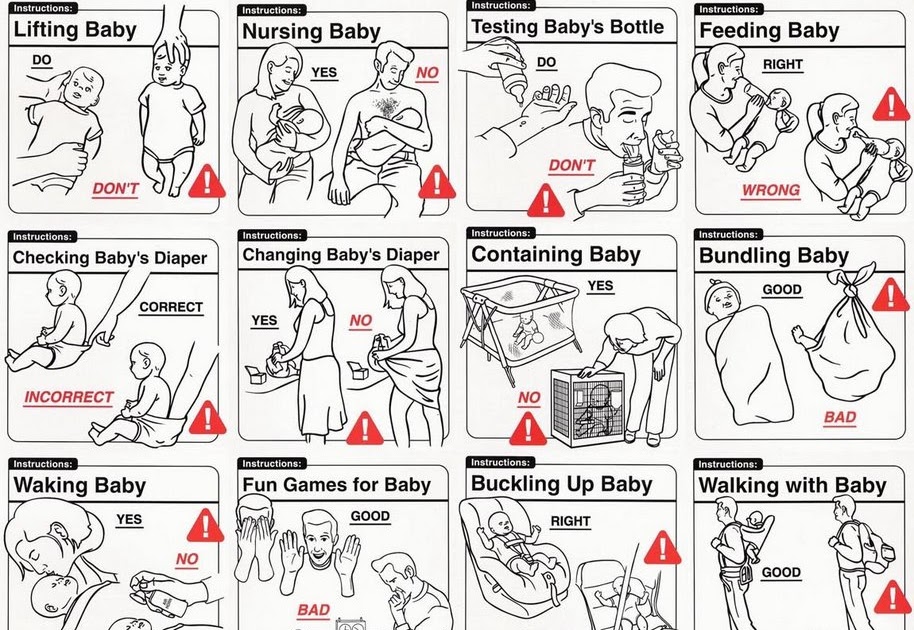
5. Don't feed your baby when he's not hungry
When a baby closes his mouth, grimaces, turns his head away at the sight of a spoon and a plate, this is a sign that he doesn't want to eat at all. Take into account his opinion and do not force him to eat. Act according to the needs of the child, and not be guided by tables from baby food books. Do not force the baby to eat the entire portion, allegedly provided for his age, if he makes it clear that he is full. If you act against the will of the crumbs, the process of eating will very soon begin to be associated with unpleasant sensations and cause negative emotions. It is quite natural that the little one will want to avoid this.
6. Call for help… fairy tale
Do you find it hard to get your baby to eat at the table? Then come up with a fairy tale with an appropriate moral. The main character of the story can be a favorite fairy tale character or a toy. But in no case do not resort to the method: “Your friend Vanya has been eating at the table for a long time, and you . ..” Comparisons never give a positive effect. They will only offend the baby, and he will insist on his own with even greater stubbornness.
..” Comparisons never give a positive effect. They will only offend the baby, and he will insist on his own with even greater stubbornness.
7. Praise success
If your fidget heeded your prayers and agreed to eat at the table, be sure to praise him for it. Tell dad, grandma, grandpa in the presence of the baby, how proud you are of him, how mature and independent he is already.
Source 4mama.com.ua
until what age to feed a baby at night
Breast milk is the ideal food for babies, so every mother should strive to maintain breastfeeding for as long as possible. But if for some reason it is impossible, it is important to choose high-quality breast milk substitutes and the optimal feeding regimen, close to the natural rhythm of breastfeeding. The younger the baby, the more often he needs food. Newborn children need to be fed several times at night, older children, from about six months, once. After a year, children can already sleep at night without waking up for feeding.
Why do newborns eat at night?
In the womb, the baby receives nourishment through the umbilical cord continuously, without separation between day and night. After birth, the volume of the baby's stomach is very small, so he cannot get enough nutrients and vitamins and minerals at one meal. Therefore, the baby needs to eat often, in small portions, so that there is no regurgitation and digestive problems.
Another argument in favor of frequent feedings is a very intensive metabolism in an infant. This is necessary to provide the body with the necessary building blocks and energy during a period of very rapid growth and development. In the first year of life, growth processes are maximum in speed, and in order for a baby to triple its weight by a year and grow by 50% of its original height, it needs to eat often and a lot.
Proper nighttime feeding of babies
Even 20 years ago there was a recommendation to endure a break at night (from midnight to six in the morning), not to feed the baby. This was explained by the fact that the stomach needs rest, and you need to “deceive” it with some water or give it a pacifier. But today it is already known for sure that the stomach is equally active both during the day and at night. In early childhood, circadian rhythms have not yet been formed and the digestive system works around the clock.
This was explained by the fact that the stomach needs rest, and you need to “deceive” it with some water or give it a pacifier. But today it is already known for sure that the stomach is equally active both during the day and at night. In early childhood, circadian rhythms have not yet been formed and the digestive system works around the clock.
Today, doctors recommend feeding a newborn on demand - he himself determines when to eat and how much milk to suck out for feeding. In the first 2-3 months, a child can wake up up to 3-4 times a night (between 9 pm and 6 am) to attach to the breast, up to six months - up to three times, after six months - once, less often twice.
- When breastfeeding, it is recommended to feed the baby on demand, including at night, giving up the practice of "hungry" motion sickness, the use of pacifiers or water.
- For mixed-fed babies at night, breastfeeding should be preferred. This will also help stimulate lactation in order to increase the amount of milk secreted during the day.

- Formula-fed infants should be fed every 3 hours. Let's say a break of 4-5 hours if this is a child older than 3-4 months.
Until what age should I feed my baby at night?
Many parents think that as complementary foods are introduced, the baby no longer needs nighttime feedings, because he can be fed during the daytime. Yes, of course, the baby already receives more dense food - vegetable, cereal, meat complementary foods. But this does not mean at all that he will not want to eat at night.
In the daytime, children eat a variety of complementary foods, and at night they have a need to attach to the breast, to get enough of breast milk. After all, the number of attachments to the breast in the daytime gradually decreases, and babies can compensate for this by waking up at night to feed.
If a child is breastfed, he may have 1 to 3 nightly feedings until the end of lactation (to fall asleep, actually at night, to calm down and fall asleep).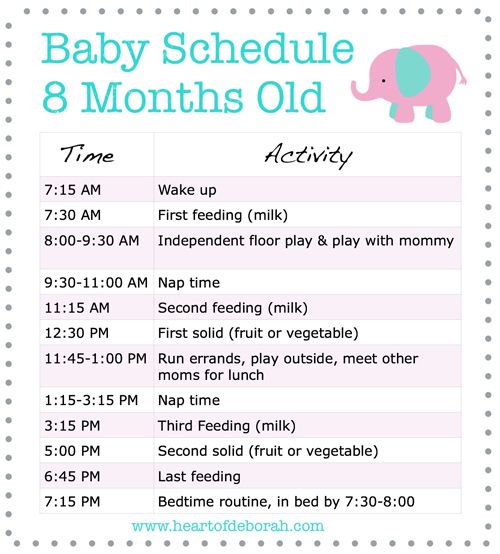 If a child is on artificial nutrition, after a year, milk formulas are almost replaced by other products. Most often, children drink cow's milk or fermented milk products at night, special mixtures for children of the second year of life (“threes” or “fours”).
If a child is on artificial nutrition, after a year, milk formulas are almost replaced by other products. Most often, children drink cow's milk or fermented milk products at night, special mixtures for children of the second year of life (“threes” or “fours”).
Most children under three wake up at least once during the night to eat. This is quite normal and does not require any radical intervention from the parents.
Should my baby be weaned from night feedings?
This issue is quite complicated and it is solved individually. Up to a year, if the child himself does not refuse night feedings, they should not be removed. After a year, this issue must be addressed individually, based on indicators of height and weight, the level of physical and neuropsychic development. If the baby was born prematurely or gained weight at the lower limits of the norm in the first year of life, it is worth leaving feeding in the second year so that the child receives more nutrients for growth and weight gain.


